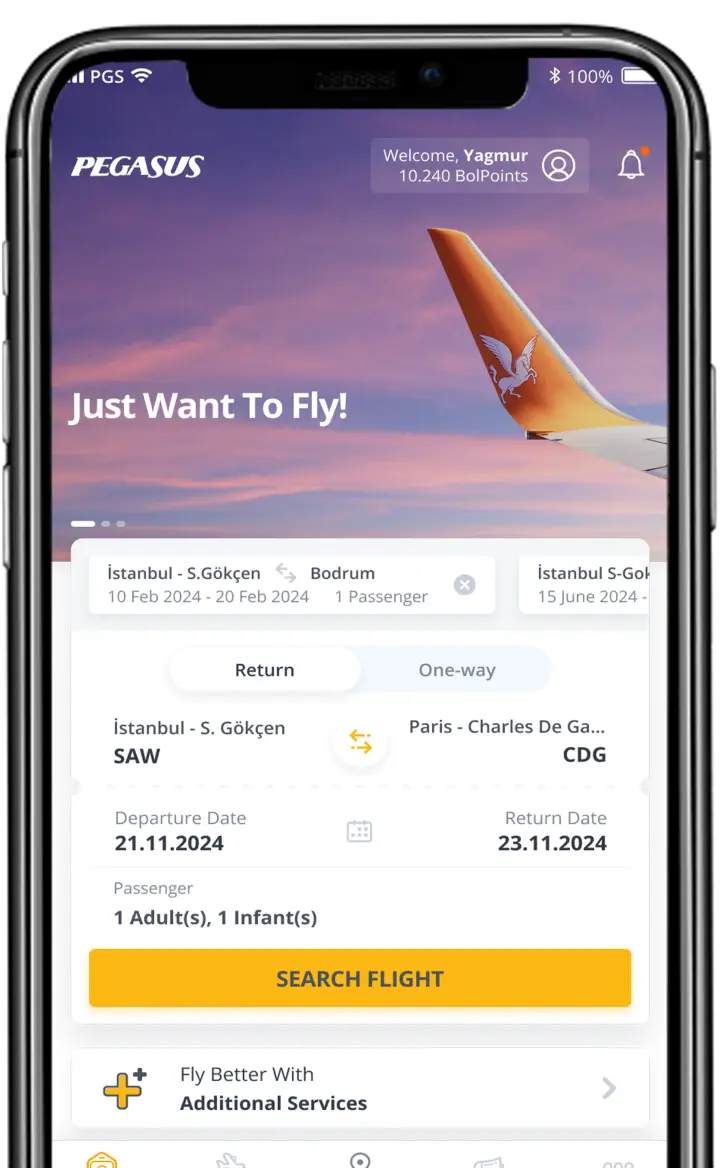 City Guide
City Guide
Warsaw Travel Guide
SEARCH CHEAP FLIGHTS
Other Topics
Other Cities
-
Abu Dhabi Travel Guide

-
Adana Travel Guide

-
Agri Travel Guide

-
Aktau Travel Guide

-
Aktau Travel Guide

-
Alexandria Travel Guide

-
Almaty Travel Guide

-
Amman Travel Guide

-
Amsterdam Travel Guide

-
Ankara Travel Guide

-
Antalya Travel Guide

-
Astana Travel Guide

-
Athens Travel Guide

-
Baghdad Travel Guide

-
Baku Travel Guide

-
Barcelona Travel Guide

-
Basel Travel Guide

-
Batman Travel Guide

-
Batumi Travel Guide

-
Beirut Travel Guide

-
Berlin Travel Guide

-
Bingol Travel Guide

-
Birmingham Travel Guide

-
Bishkek Travel Guide

-
Bologna Travel Guide

-
Bucharest Travel Guide

-
Budapest Travel Guide

-
Casablanca Travel Guide

-
Cluj-Napoca Travel Guide

-
Cologne Travel Guide

-
Copenhagen Travel Guide

-
Dalaman Travel Guide

-
Dammam Travel Guide

-
Denizli Travel Guide

-
Doha Travel Guide

-
Dortmund Travel Guide

-
Dubai Travel Guide

-
Düsseldorf Travel Guide

-
Edinburgh Travel Guide

-
Eindhoven Travel Guide

-
Elazig Travel Guide

-
Erbil Travel Guide

-
Erzincan Travel Guide

-
Erzurum Travel Guide

-
Frankfurt Travel Guide

-
Ganja Travel Guide

-
Gaziantep Travel Guide

-
Geneva Travel Guide

-
Giresun Travel Guide

-
Grozny Travel Guide

-
Hamburg Travel Guide

-
Hannover Travel Guide

-
Hatay - Antakya Travel Guide

-
Helsinki Travel Guide

-
Hurghada Travel Guide

-
Igdir Travel Guide

-
Istanbul Travel Guide

-
Izmir Travel Guide

-
Jeddah Travel Guide

-
Kahramanmaras Travel Guide

-
Karachi Travel Guide

-
Kars Travel Guide

-
Kayseri Travel Guide

-
Kharkiv Travel Guide

-
Kherson Travel Guide

-
Konya Travel Guide

-
Krasnodar Travel Guide

-
Kutaisi Travel Guide

-
Kuwait Travel Guide

-
Kütahya Travel Guide

-
Kyiv Travel Guide

-
Kyrenia Travel Guide

-
London Travel Guide

-
Lviv Travel Guide

-
Lyon Travel Guide

-
Malatya Travel Guide

-
Manchester Travel Guide

-
Mardin Travel Guide

-
Marseille Travel Guide

-
Medina Travel Guide

-
Milan Travel Guide

-
Mineralnye Vody Travel Guide

-
Morocco Travel Guide

-
Moscow Travel Guide

-
Mus Travel Guide

-
Muscat Travel Guide

-
Nicosia Travel Guide

-
Northern Cyprus Travel Guide

-
Nuremberg Travel Guide

-
Odessa Travel Guide

-
Ordu Travel Guide

-
Osh Travel Guide

-
Oslo Travel Guide

-
Paris Travel Guide

-
Plovdiv Travel Guide

-
Portugal Travel Guide

-
Prague Travel Guide

-
Ras Al Khaimah Travel Guide

-
Rize Travel Guide

-
Rome Travel Guide

-
Rotterdam Travel Guide

-
Samsun Travel Guide

-
Sanliurfa Travel Guide

-
Sarajevo Travel Guide

-
Scotland Travel Guide

-
Shymkent Travel Guide

-
Sinop Travel Guide

-
Sivas Travel Guide

-
Skopje Travel Guide

-
Sofia Travel Guide

-
St. Petersburg Travel Guide

-
Stockholm Travel Guide

-
Stuttgart Travel Guide

-
Sulaymaniyah Travel Guide

-
Tabriz Travel Guide

-
Tbilisi Travel Guide

-
Tehran Travel Guide

-
Tirana Travel Guide

-
Trabzon Travel Guide

-
Van Travel Guide

-
Venice Travel Guide

-
Vienna Travel Guide

-
Yerevan Travel Guide

-
Zagreb Travel Guide

-
Zaporizhia Travel Guide

-
Zurich Travel Guide

Warsaw is Poland's capital and largest city, with a population of around 1.8 million. Warsaw is located in the country's east-central part, on the banks of the Vistula River, with a well-developed public transportation system, including buses, trams, and a metro system. Visitors can easily access the city from Warsaw Chopin Airport, just a few kilometres from the city centre.
Warsaw has much to offer visitors, from its fascinating museums and galleries to its lively nightlife and trendy restaurants. The city is renowned for its historic Old Town, which has been meticulously restored after being almost destroyed during World War II. The magnificent Royal Castle, which was used as the official residence of Polish monarchs, is one of the best things to see in the city.
Weather in Warsaw can be quite varied depending on the time of year. Winters are typically cold and snowy, with temperatures averaging around freezing, while summers are generally warm and sunny, with average temperatures around 20-25 degrees Celsius. The temperatures might suddenly change in spring and autumn, and occasional rain showers are highly common. If you are prepared for the weather and bring extra clothing, Warsaw is a city worth visiting for its rich history, stunning architecture, and vibrant cultural scene.
General Information
| Country: | Poland |
| Region: | Mazovia (Masovian Voivodeship) |
| Area: | 517.24 km2 |
| Language: | Polish |
| Average temperature: | 9 °C |
| Climate: | Continental |
| Vegetation: | Maquis |
| The difference between GMT: | GMT+2 |
| Telephone Code: | +48 |
| Currency: | Polish zloty |
| Socket Type: | Type C/E |
How to Get to Warsaw?
Warsaw is located at a central location which is considered an important hub to reach most of the European cities. The best way to visit this city is to fly directly to Warsaw from hundreds of destinations or take a train from nearby cities. Pegasus Airlines offers the best flight deals for those visiting Warsaw and nearby cities in Poland.
Transportation from Warsaw Airport to City Centre
Getting from Warsaw Chopin Airport to the city centre is fast and easy, thanks to the city's efficient public transportation system, which includes buses, taxis, and trains. The most accessible and affordable option is to take the bus from the airport. You can take this bus every 15-20 minutes, and it takes around 30 minutes to reach the city centre. If you prefer a more comfortable option, taxis are readily available outside the airport terminals, although they can be expensive. The train is also another option, and this mode of transport takes around 20 minutes. Regardless of your transportation mode, you can be sure that getting to and from the airport in Warsaw is a hassle-free experience.
Public Transport in Warsaw
Public transportation in Warsaw is reliable, efficient, and affordable, which includes an extensive network of buses, trams, and a metro system, making it easy for visitors to explore the city. The Warsaw Metro is the fastest way to travel around the city, with two lines that cover much of the central area. The buses and trams are also a great way to get around, with routes that reach all city corners. Tickets can be purchased at ticket machines or kiosks, as well as onboard buses and trams, and they are valid for all modes of transportation. Various ticket options are available, including single tickets, day tickets, and multi-day passes, making it easy to find a ticket that suits your needs.
Best Time to Visit Warsaw
The best time to visit Warsaw is from May to September when the weather is mild and the days are longer. During these months, the city is bustling with activity, and there are plenty of outdoor events, festivals, and concerts to enjoy. The summer months are especially popular, with many locals taking advantage of the warm weather to spend time in the city's parks and outdoor cafes. However, these months are also the most crowded and most costly, with higher hotel rates and larger crowds. If you're looking for a quieter and more budget-friendly time to visit, consider visiting in the spring or autumn when the weather is still pleasant and the city is less crowded.
Festivals in Warsaw
- Warsaw Summer Jazz Days - This festival takes place in June and brings together jazz musicians worldwide to perform in various venues around the city.
- Chopin and His Europe - This classical music festival celebrates the life and music of Frederic Chopin and takes place in August and September.
- Warsaw Film Festival - This international film festival takes place in October and showcases many films in various genres.
Places to Visit in Warsaw
Warsaw is a vibrant and fascinating city with plenty to see and do year-round, giving tourists plenty of options for places to visit in Warsaw. Some of the appeals of this beautiful European city are:
The Old Town
This historic district is a UNESCO World Heritage Site. It features picturesque streets, charming cafes, and colourful buildings restored to their pre-World War II appearance.
The Royal Castle
This iconic landmark was once the residence of Polish monarchs and features stunning Baroque architecture and rich history.
The Warsaw Uprising Museum
Dedicated to the Polish resistance during World War II, this museum tells the story of the Warsaw Uprising of 1944 through interactive exhibits, artefacts, and multimedia displays.
Lazienki Park
Also known as Royal Baths Park, here visitors can enjoy historical structures such as Palace on the Isle, the Amphitheatre, and the Old Orangery inside this incredible European park.
The Palace of Culture and Science
Situated at the centre of Warsaw, this 1950s building has 42 floors and stands at a height of 237 metres, giving it the title of the tallest building in Warsaw.
Wilanow Castle
The late 17th century reflects all the features of Baroque architecture in Poland. The castle's land includes landscaped gardens, fountains, and a mini garden.
Where to Stay in Warsaw?
Warsaw has different accommodation options ranging from luxurious hotels to cosy bed-and-breakfast hostels. Anyone can find a suitable accommodation option in the city without having to pay for hotels.
What to Eat in Warsaw?
- Pierogi - These are dumplings stuffed with potato and cheese, meat, sauerkraut, or mushrooms. Pierogi are a staple of Polish cuisine and can be found in nearly every restaurant in Warsaw.
- Zurek - This sour rye soup is a staple of Polish cuisine made with fermented rye flour, meat, and vegetables. It's typically served with boiled potatoes and a hard-boiled egg.
- Paczki - These are traditional Polish doughnuts filled with various sweet fillings, such as jam, custard, or Nutella.
Shopping in Warsaw: The Best Souvenirs to Buy
There are lots of gift options you can buy from Warsaw. Some of the most famous Polish souvenirs are:
- Amber Jewellery
- Polish pottery
- Traditional sweets
Nightlife in Warsaw
Trendy clubs, cosy bars, or live music venues are dispersed throughout the city for locals and visitors to enjoy the nightlife. One of the most popular areas for nightlife in Warsaw is the historic district of Praga, where visitors can witness the area's transformation into an entertainment centre. Powisle, which has a more laid-back and bohemian vibe, is a popular nightlife destination among younger people.
Things to Know Before Visiting Warsaw
- It's important to note that the official currency in Poland is the Polish zloty (PLN), and it's advisable to have some cash on hand for small purchases, as not all places accept credit cards.
- Additionally, while English is widely spoken in Warsaw, it's always helpful to learn a few basic Polish phrases before your trip, as locals will appreciate this, and communication will get easier.
- The weather in Warsaw can vary depending on the season, and you might get sudden cold breezes even on a hot summer day.
Essential Phone Numbers to Know
Emergency service: 112
Police: 997
Ambulance: 999
Warsaw Tourist Information: +48 22 19431


